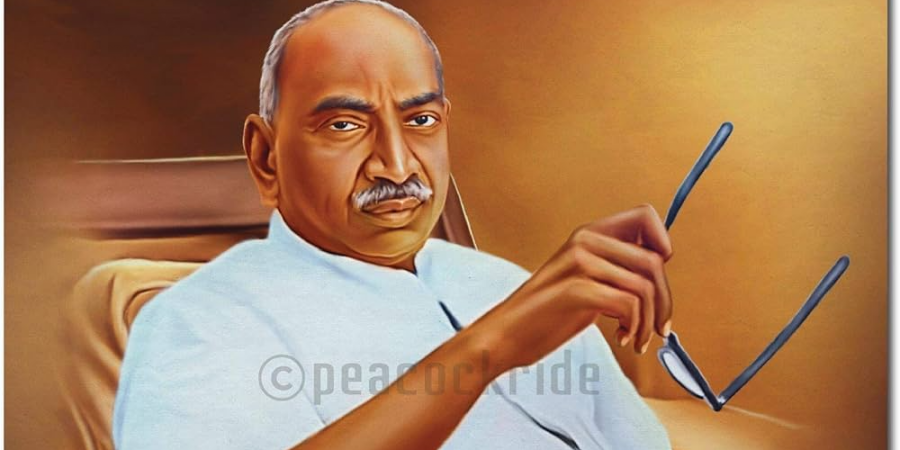

Known by his famous nickname Kamarajar, Kumaraswami Kamaraj BR (15 July 1903[1] – 2 October 1975) was an Indian politician and independence activist who led Madras State (Tamil Nadu) as chief minister from 13 April 1954 until 2 October 1963. Known as the "Kingmaker" of Indian politics in the 1960s, he was the founder and president of the Indian National Congress (Organisation).
In addition, he presided over the Indian National Congress for two terms, a total of four years, from 1964 to 1967. It was during his tenure that Lal Bahadur Shastri was appointed India's prime minister following the passing of Jawaharlal Nehru and Indira Gandhi.
He served as a member of the Lok Sabha from 1952 to 1954 and from 1969 to 1975. He was renowned for his honesty and simplicity. He made significant contributions to the state of Madras's infrastructure development and endeavored to raise the standard of living for the underprivileged and destitute.
When the municipality of Virudhunagar installed a direct water connection to Kamarajar's residence in his hometown during his time as Chief Minister, he promptly ordered that it be severed because he did not want any preferential treatment. As the chief minister of Tamil Nadu, he was granted Z-level protection, but he declined to utilize it, instead to ride in a single police patrol car. He never got married, owned no property, and was never drawn to positions of authority.[Inadequate confirmation] Upon his demise, he bequeathed ₹130, two sets of sandals, four shirts, four dhotis, and several books.
Kamaraj was appointed Chief Minister of the Province of Madras on April 13, 1954. To the amazement of all, Kamaraj proposed C. Subramaniam, who had challenged his leadership, to be the cabinet's new member. With effect from August 9, 1954, Shri K. KamaraJ has resigned from his position as a member of the House.
Politics:
During his tenure as Chief Minister, Kamaraj abolished Rajaji's 1953 Modified Scheme of Elementary Education, which was based on family occupation. He reopened 12,000 additional schools in addition to the 6000 that C. Rajagopalachari's previous government had shuttered due to budgetary constraints. The State advanced trade and education tremendously. With the opening of new schools, impoverished rural children would now only need to go three kilometers to the closest school. The current facilities were upgraded. There was not a single panchayat without a high school, and every hamlet had a primary school.
Kamaraj noon meal scheme:
In 1956, the concept was implemented throughout the State. At the time, Chief Minister K. Kamaraj made the decision to give underprivileged students in all State elementary schools a free midday lunch. It was launched at the birthplace of poet and independence warrior Subramania Bharati, Ettayapuram (today in the Thoothukudi district).
Death:
On October 2, 1975, the day of Gandhi Jayanti and the 12-year anniversary of his resignation, Kamaraj passed away at home. He passed away from a heart attack while sleeping at the age of 72.
A Great Leader will never Come Again 🙏🙏🙏🙏.
